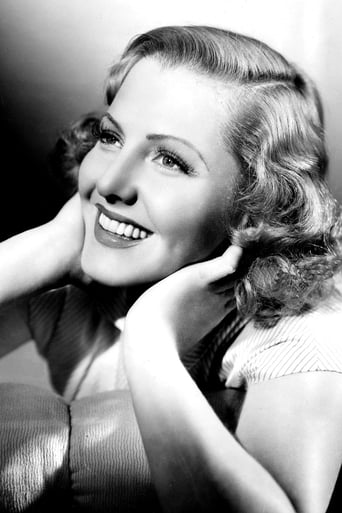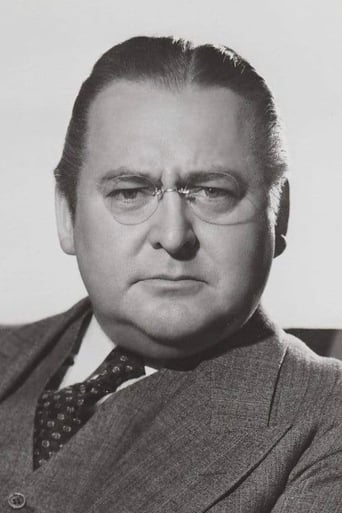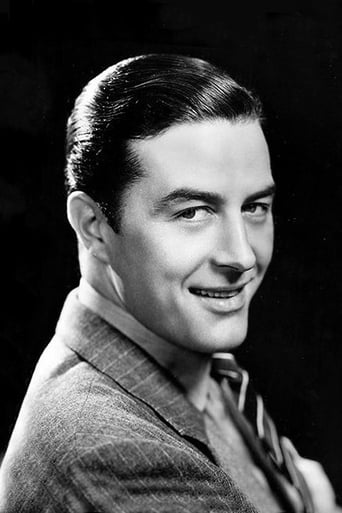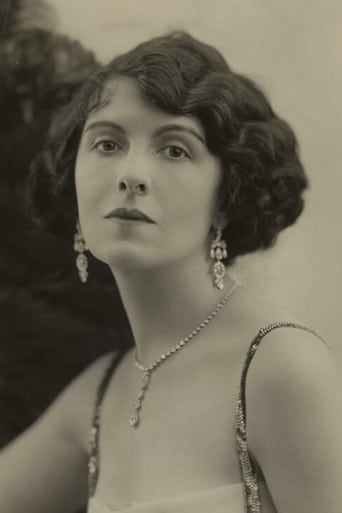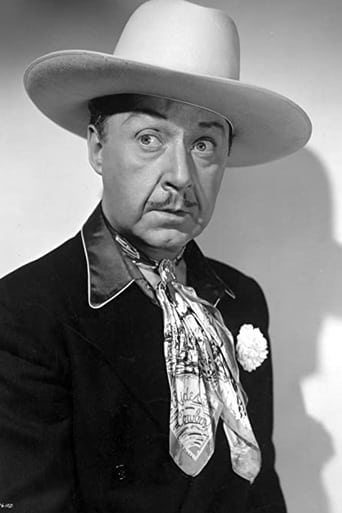Dotsthavesp
I wanted to but couldn't!
AshUnow
This is a small, humorous movie in some ways, but it has a huge heart. What a nice experience.
Aubrey Hackett
While it is a pity that the story wasn't told with more visual finesse, this is trivial compared to our real-world problems. It takes a good movie to put that into perspective.
Matho
The biggest problem with this movie is it’s a little better than you think it might be, which somehow makes it worse. As in, it takes itself a bit too seriously, which makes most of the movie feel kind of dull.
dstanwyck
She's a little bit of heaven right here on this crazy territory called earth. She sails and soars and delights - her glances, her shyness, her awkwardness in love, the voice of a skylark. Perhaps you can tell: I'm a little bit in love with Jean Arthur (and Ingrid Bergman - but she's not here at the moment). For me, in the realm of screwball comedy, no one compares. Loy and Colbert and Russell (when she's not hamming it up) and Lombard (when she doe not over use her importuning screech) are all fine and wonderful and Jim Dandy - but I'm not in love with them. All that romance aside - this is a delightful film of absurdity. Or screwballism, I guess you might say if you wanted to coin a word. From mink coats dropping from rooftops onto the head of a passerby in a double-decker bus (and I remember them from when I was a kid in the very city it takes place) and automat pies (I remember them, too) and luxury hotel rooms for your dreamy pleasure and Edward Arnold bellowing and blustering as only he can (never even nominated for an Academy Award! Him and Ed. G Robinson and Myrna Loy for that matter. Now that's really absurd!) Mitchell Liesen was an under-rated director. And Franklin Pangborn and Mary Nash (not evil for a change) and Ray Milland just beginning his foray into light-weight comedy and good at it, too. These movies don't have to make sense; there is too much of that going on in a world that is totally nonsensical. Laugh out loud and bring out the popcorn and give your favorite squeeze a squeeze. Amen!
kenjha
The lives of a rich banker and his son become unwittingly entangled with that of a poor working girl in this enjoyable if unspectacular comedy. Given that comic genius Preston Sturges wrote the screenplay, the talented Mitchell Leisen directed it, and adorable Jean Arthur stars in it, the film falls somewhat short of expectations. Sturges would of course go on to write and direct some of the best comedies of the era, but here the script is not as inspired as his later efforts. It has its moments though, including a slapstick scene in a cafeteria. As the perky young woman, Arthur is fine as usual, as are Arnold as the banker and Milland as his son.
krdement
My favorite films are from the '30s to the late '40s. Jean Arthur is one of my favorite actresses. Edward Arnold is one of my favorite character actors. I looked forward to this film with high expectations, but was very disappointed.The reason this movie disappointed me is difficult to pinpoint. Without more background, some elements of the story just don't seem to add up. There is a whole lot of yelling in this movie; that gets old. Oh yeah, and lots of slapstick. The Automat scene was waaaay too long. But mostly, the characters just don't seem quite on the mark. In addition to many great dramas, Miss Arthur's resume includes many of my favorite comedies: The Whole Town's Talking (1935), If You Could Only Cook (1935), Mr. Deeds Goes to Town (1936), The Ex-Mrs. Bradford (1936), You Can't Take It With You (1938), Mr. Smith Goes to Town (1939), The Devil and Miss Jones (1941), The Talk of the Town (1942), The More the Merrier (1943), A Foreign Affair (1948). I recommend them all over Easy Living. I even prefer A Lady Takes a Chance (1943).As much as I love Jean Arthur, her character here isn't portrayed quite right. She is just too innocent and unquestioning of everything that happens. Her attitude should have been less naive and more like, "I don't really understand why this windfall has come my way, but I'm going to take advantage of it while I can." She needed to be less ingenuous and more opportunistic. Her idealism and optimism needed to be tempered by a little realistic skepticism.The character of the Hotelier (Luis Alberni) is an immigrant Italian chef who has learned fluent American slang somewhere, but also has opened a HUGE, opulent hotel for upper crust clientèle. So, he has this great ambition to run an elite hotel, but doesn't see the need to speak to his proposed clientèle any differently than the boys in the Bronx? PLUS, we don't know how he convinced the "Number 3" financier in New York to finance this operation. How much money did this humble chef bring with him when he immigrated from Italy? Moreover, Arnold, the shrewd banker, has extended the guy not 1, not 2, but 3 mortgages! AND the 1st mortgage is overdue by 3 YEARS, the 2nd by 2 YEARS and the 1st by 1 YEAR! Not consistent with Arnold's character at all!Ray Milland is pretty light weight, and he never infuses his character with more than 1 dimension.There isn't really a character with whom I could identify. For me, a successful screwball comedy needs one stable character for all of the silliness to revolve around. That gives the audience somebody to identify with and grounds the movie in some kind of reality. William Powell in My Man Godfrey and Brian Aherne in Merrily We Live are the best examples.I thought this movie was a lot of noise and action that never really drew me into the story. In sum, I felt like an outsider watching a movie. It never really tickled my funny bone or inspired my empathy as better comedies do.
PWNYCNY
This is an amusing, entertaining Hollywood antique featuring a number of actors who became Hollywood icons such as Jean Arthur, Ray Milland, and Edward Arnold. Before Ed Asner there was Edward Arnold. Mr. Arnold was one of the greatest actors in Hollywood history. His performances were consistently great and through him a weak script became good and good script great. He was one of those actors who dominated the screen and could play a wide range of roles opposite some of the most famous Hollywood players. As for Jean Arthur, she specialized in a style of acting that established a precedent for Lucille Ball, except that Ms. Arthur did not have to act goofy. Movies from the 1930s were made in a certain style that was unique to that period. Black-and-white, simple, engaging, upbeat stories, lots of action, and optimistic about life - all this during the Great Depression. This is another Preston Sturges gem and definitely is worth watching.
